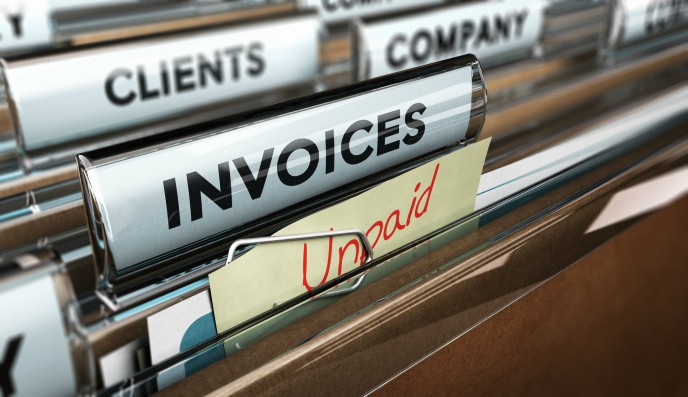Running a business can be extremely rewarding. However, when it comes to getting your invoices paid on time it can also become difficult, time consuming and frustrating.
Now, more than ever, keeping on top of the invoicing process and successfully managing your debtors is crucial to maintaining your cash flow and ensuring you can pay your own outgoings.
Successfully managing the credit control process will provide you with the confidence that your business is on track and will help to eliminate any nasty surprises that may otherwise go unnoticed.
How long should my credit terms for customers be?

If you issue invoices to customers in exchange for goods and services, you may wish to offer a term of credit. This means you will give them a specified period of time in order for them to settle the payment. This is normally agreed in advance with your customer before goods or services are provided and is commonly 30 days in length. However, sometimes it might be shorter or longer, depending on your terms and conditions, the agreement you have put in place with the customer, the customer’s credit history and your own cash flow requirements.
Granting credit to a customer should never be undertaken lightly. Before embarking on any new business relationship, it is wise to ensure you are fully informed about the customer’s ability to pay before agreeing any credit terms. Checking a company’s credit rating first will help you to determine if a business is viable and has the means and motivation to pay you on time. There are a variety of websites, which offer credit rating services for a small fee.
What should I do if a customer hasn’t paid their invoice?
Overdue invoices and unpaid debts can be devastating for any type of business. If you have customers who haven’t paid their invoices on time, there are various things you can do:
- Ensure your invoice has been received – sending invoices by email has become an increasingly common practice. Not only can it help speed up the delivery process but it can also help ensure payments are made more quickly. If you have sent an invoice either by post or email, and it is now overdue, first call the company to check it has been received and hasn’t been lost.
- Set up payment reminders – if you email your invoices, it is worthwhile setting up a gently worded payment reminder. Even better, you can do this at the same time as you raise the invoice by utilising the ‘delay delivery’ function and setting it up to send as soon as the payment window expires. If you receive the payment on time, you can simply delete the email from your Outbox, where it will be pending delivery. If you prefer to use the post, then setting your own reminders for overdue invoices will help you to keep on top of things.
- Agree new terms – sometimes customers might be experiencing their own cash flow difficulties. If this is the case, and they owe you money, they should always discuss it with you in the first instance. It’s always worthwhile agreeing a mutually beneficial payment plan between you and the customer before taking any legal action. This will help maintain the relationship and ensure you receive payment without it costing you money in legal fees.
- Take action – if several reminders and calls have proven to be fruitless and your invoice remains unpaid, it is most likely going to stay this way unless you take further steps. At this point, sending a Letter Before Action might help to solve the problem and can motivate debtors to settle outstanding payments. If you are unsure about how to word such a document, we will be happy to help guide you through the process.
- Third party debt collection – if you have exhausted all avenues and your invoice remains unpaid, it’s highly likely you will need to call in a third party debt collection specialist. Although you will need to pay them for their services (usually a percentage of the recovered invoice amount), they can be highly successful in retrieving funds. If you are looking for a reputable company, we can help to arrange this on your behalf.
Here at AMR we offer free credit management health checks to businesses of all sizes. If handling your credit control in-house is becoming troublesome or you are struggling to manage bad debt, give us a call today to find out how we can help.







